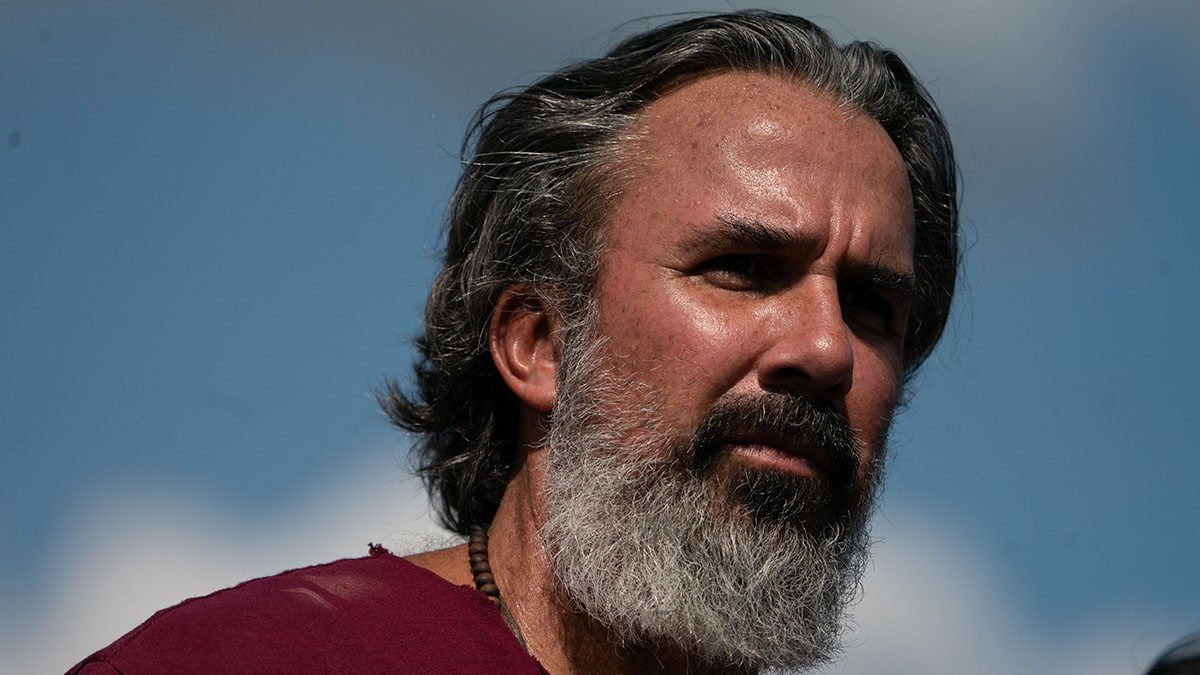Relaxing on the porch with her two Great Pyrenees dogs in Central Florida, Marcy Cunningham feels light years away from the terror.
“I could see his elbow and I could see shells flying and I could hear what was going on in the room next to me, but he, thank God, you know, totally bypassed my room,” Cunningham said.
She was teaching English at Marjory Stoneman Douglas High School on Feb. 14, 2018. Cunningham heard the shots and screams, but still thought, maybe the drama department was staging a realistic drill.
Just in case it wasn’t a drill, she stepped into the hallway to lock her door. They locked from the outside. The shooter was 30 feet away, with his assault rifle, firing rounds indiscriminately.
“I didn’t even realize I had stepped on somebody on the way back in,” Cunningham said.
That was one of the horrific details, she says, that came back to her during therapy.
“I was inside a classroom that was shot into where kids were injured and two were murdered," said Ivy Schamis, who was teaching her class on Holocaust history when tragedy burst in. "I mean, it’s just so mind-boggling. Sometimes I think that it wasn’t me, you know what I mean? It just feels so unreal."
Parkland School Tragedy
Get South Florida local news, weather forecasts and entertainment stories to your inbox. Sign up for NBC South Florida newsletters.
Schamis works in Washington, D.C. now. She toughed it out for a year in Parkland, but every day coming back to the campus was a struggle.
“I used to have to talk to my husband on the phone all the way ‘till I got to the parking lot at Stoneman Douglas," Schamis explained. "It was really hard for me, so I didn’t really show it so much because I wanted the kids to be brave and I wanted them to go and finish and know that they have these incredible lives in front of them. And so I went back that following year because my juniors were then seniors and there was no way I was leaving with them still at the school.”
The waves of emotional trauma eventually drove her and Cunningham away from Douglas High, away from the building, which still sits like a scar on the campus.
“I looked over at the 1200 building and I thought to myself, 'I cannot get my body healed and my mind healed if I’m here,' I knew it, and even though I wanted to be there for my kids, I knew that I had to take care of my health first,” Cunningham said.
Wherever they are now, the teachers who were inside that building keep in touch with each other, and often, with their students as well. They have a bond forged by surviving the unimaginable.
“All the kids went to war,” Cunningham said. “They had a taste of what war was like, and no 14, 15-year-old should have to step over the dead bodies of their classmates and nor should they have to pick up one of their classmate’s bodies as a shield. I had angels all around that room.”
I asked her what she told the student who told her, how do I get it out of my head that I had to use another child’s body as a shield?
“I just hugged her, I didn’t want to give her any negatives,” Cunningham said.
For the remembrance this year, Schamis is writing letters to all of her former students. She says only they know what it was like in her classroom when the bullets shattered everything, taking the lives of Nick Dworet and Helena Ramsey.
“Of course, if it could’ve been me instead of the two young people who died, of course, I would change places with them, who wouldn’t?” Schamis said.
Schamis and Cunningham say therapy has been an invaluable help, and so was a visit from a Columbine High School teacher who spoke to the faculty at Douglas last year.
Cunningham recalled asking her, when will I be OK? When will I be me again?
"And she looked at me and she said, 'You never will,'" Cunningham said.
So the teachers have formed their own informal support group.
“The camaraderie there and the support is really incredible and we just need to continue to lean on each other and if it’s for the rest of our lives, then it’s the rest of our lives,” Schamis said.
Don’t be afraid to seek help, the teachers say, life goes on.
“And I told my kids that, too. I said don’t you sit there and feel sorry for yourself. I said, you have a second chance, you’re here,” Cunningham said. “I pray every morning for the parents, and the spouses and for my kids. I want them to be whole, I want them to go and enjoy life.”
Wherever they are, wherever they go, the experience they shared will always be with them.
“No one knows my story,” Schamis said of living in Washington. “No one knows what happened, no one feels sorry for me, so it’s a little bit liberating.”


